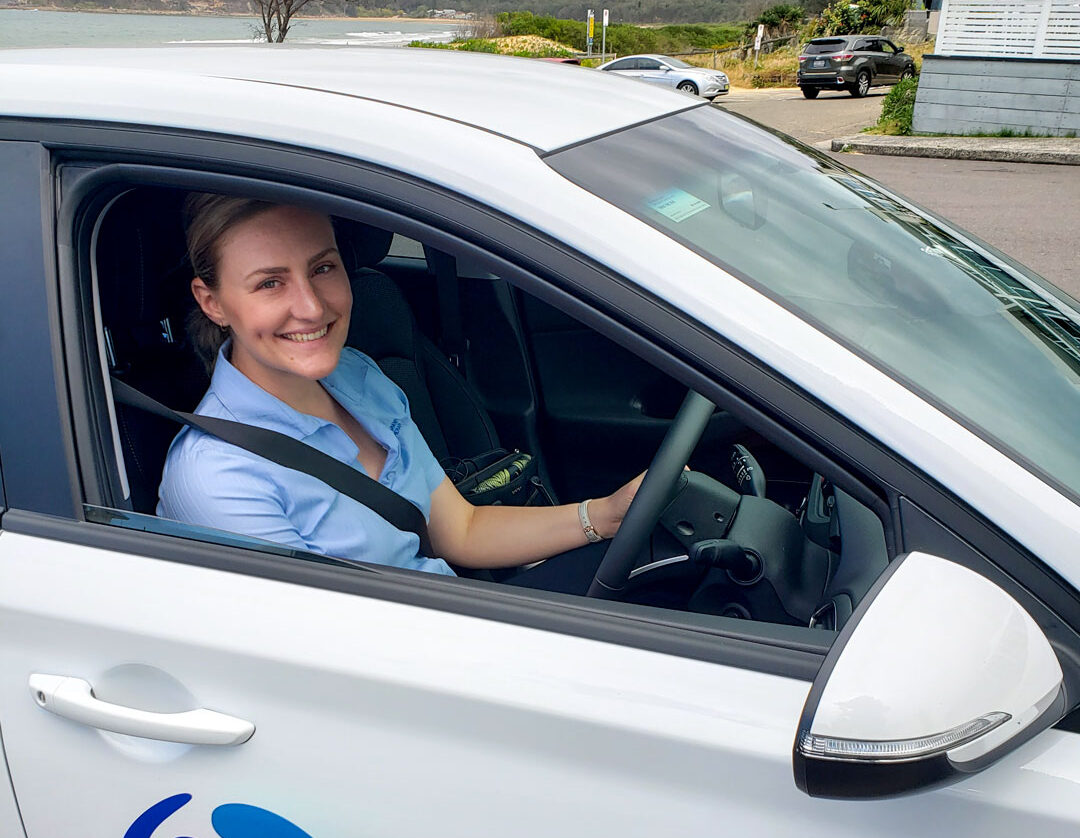Home Visit Physiotherapy
Community Therapy provides mobile Physiotherapy across the Central Coast, Hunter, and Port Stephens regions. Our mobile services are predominantly accessed by older adults, people living with disabilities, and patients recovering from surgeries at home, such as total knee and total hip rehabilitation.
Our home visit Physiotherapy services focus on helping people improve their mobility, strength, balance, falls prevention as well as pain management.

Mobile throughout Newcastle, Central Coast & Hunter
Home Visit Physiotherapy Assessments
The number of visits we are able to offer depends on the patient’s status and their funding options.
For some services, such as our rehabilitation-at-home program with private health insurers or hospitals, we are pre-approved to provide a set amount of visits over a certain number of weeks. In other cases, such as an older adult who has a home care package or a person living with a disability who has funding under the NDIS, there is more flexibility in terms of the number of visits available.
After our initial assessment, we’ll work with the person to determine the frequency of visits needed to help them achieve their goals. Depending on the person’s condition, we may recommend weekly or fortnightly Physiotherapy sessions. In between visits, we’ll recommend that our clients follow a prescribed exercise program so that they can continue progressing towards their Physiotherapy goals.
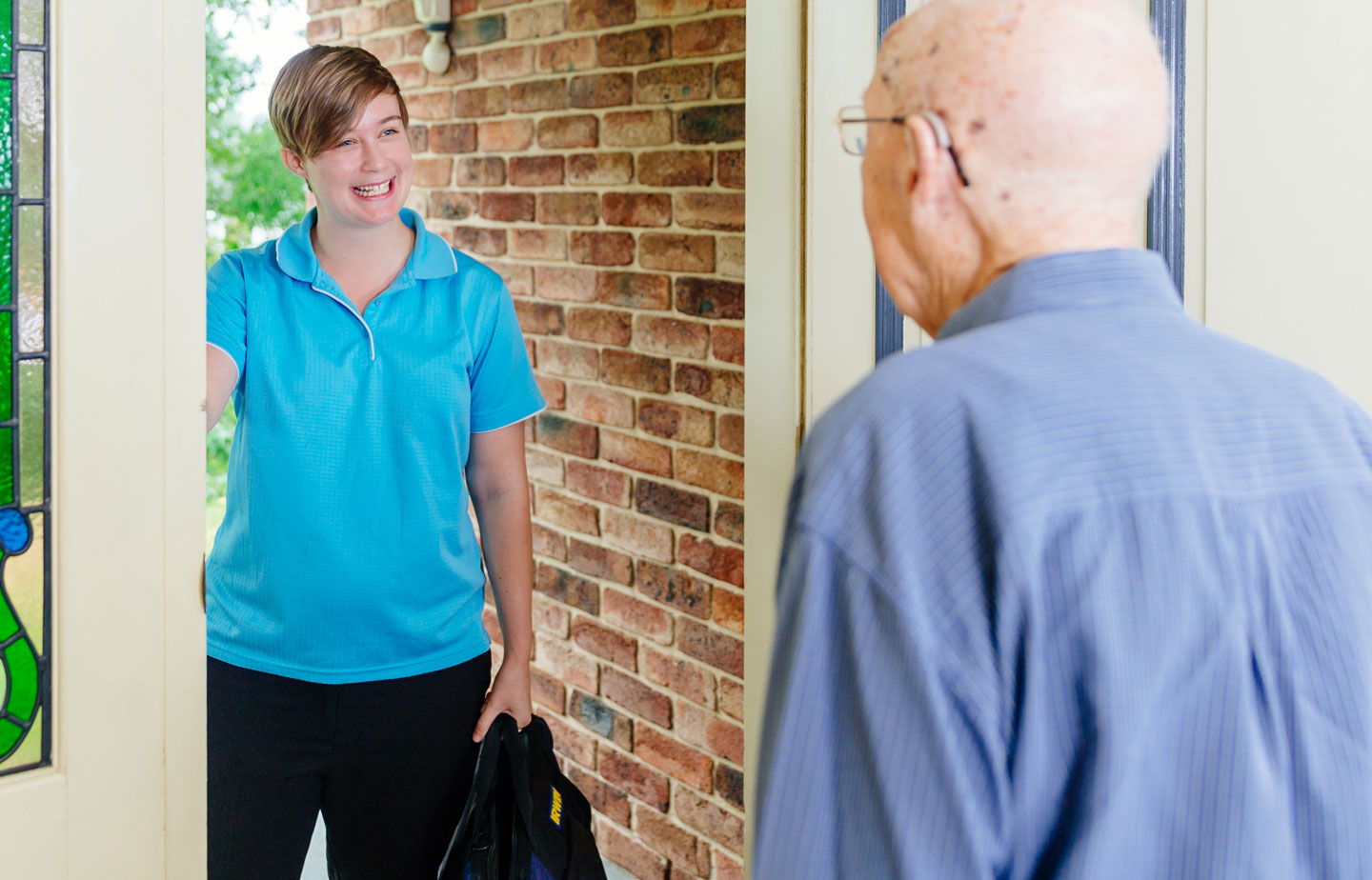
Improving Strength at Home
There are different ways to measure physical strength in the home environment. Our Physiotherapists use several objective tests to determine if a person has a strength deficiency outside what we would normally expect for their age group.
One simple test that is commonly used is the Five Time Sit to Stand Test. During this test, the person is timed to see how long it takes them to move from sitting to standing five times without using their arms.
In this outcome measure, if somebody is taking longer than the normal time for the age group, that will indicate a deficiency to improve upon.
Physical strength is correlated to better mobility and balance, which helps decrease the risk of falling. People with relatively strong physical strength and mobility skills also have a better overall quality of life and, to some extent, are able to live longer and healthier lives.
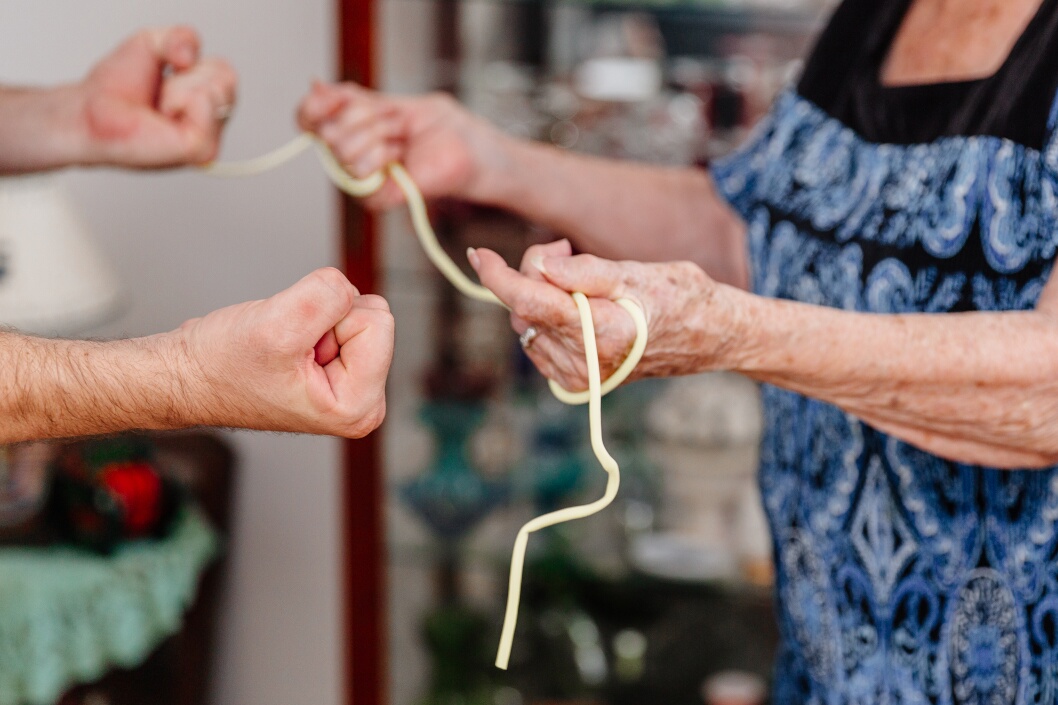
Improving Mobility at Home
Mobility is a common term used by Physiotherapists and other Allied health professionals. Mobility in this context refers to the way in which somebody moves around their environment.
This can mean simply how they walk around their home or the way in which they transfer themselves from surface to surface. For example, how somebody is moving from their bed to standing and then into the bathroom and onto the toilet.
In assessing someone’s mobility, our Physiotherapists will examine how they transition through all these movements and work towards optimising them.

We Consider Respiratory Health
Respiratory Physiotherapy is a defined skillset for Physiotherapists as part of their undergraduate education, and many Physiotherapists continue to advance their skills along the respiratory clinical pathway.
At Community Therapy, we employ a range of Physiotherapists who are skilled and passionate about respiratory care in the community.
During the initial assessment, the Physiotherapist will screen for respiratory function and pursue further respiratory assessments if indicated. Additional assessments may be needed if the patient is living with a respiratory condition, such as COPD or asthma, or a type of neurological condition that is challenging their respiratory function, such as motor neuron disease or post-stroke neurological impairments.
The great thing about home visit Physiotherapy is that evidence-based respiratory interventions and treatment approaches can be easily implemented in the home environment. Even treatments for individuals requiring advanced respiratory healthcare, (i.e. those using suction devices to help manage secretions and airway clearance) can now be managed at home.
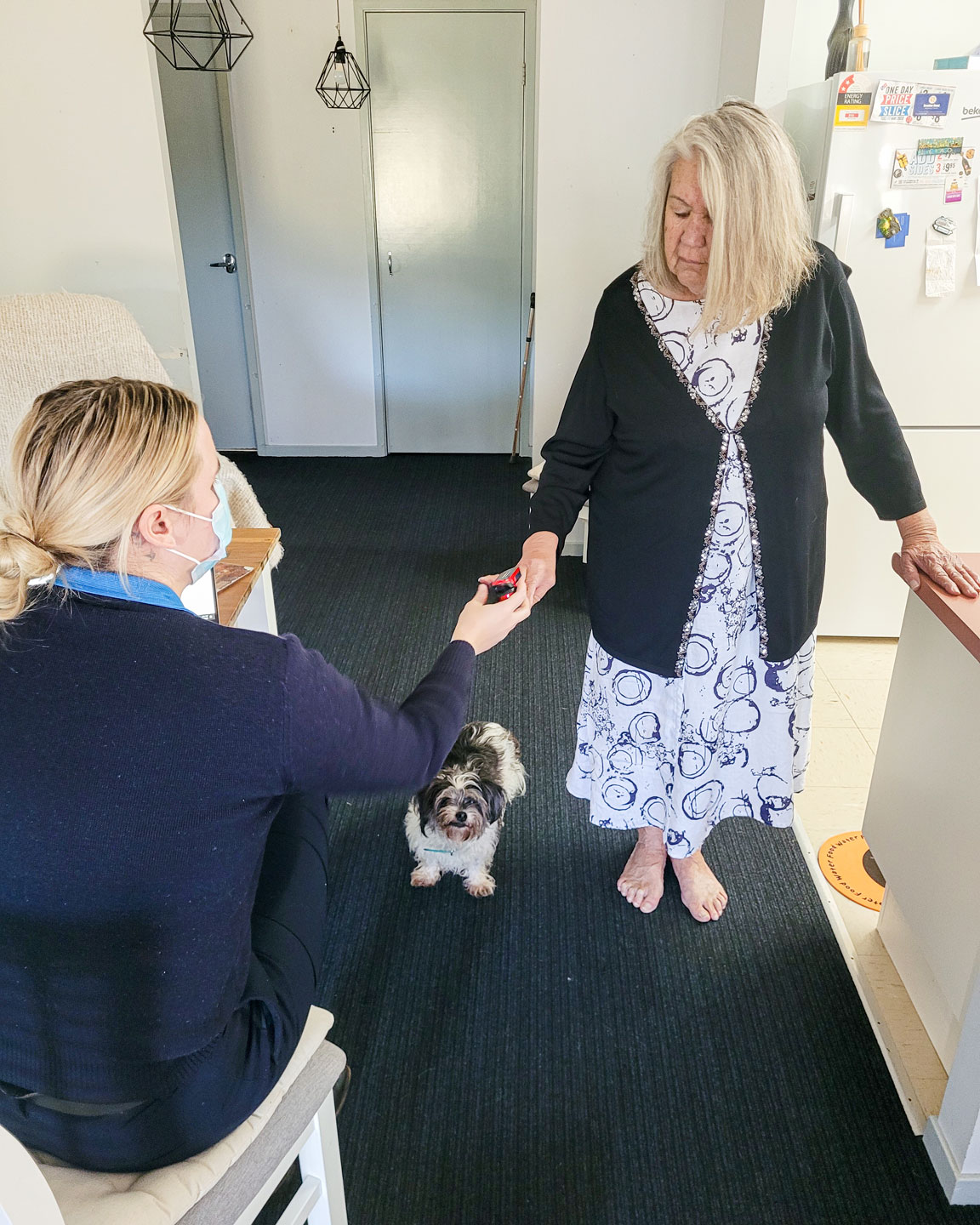
Managing and Reducing Pain
We Help with Acute & Chronic Pain
Pain management is a common care need supported in home visit Physiotherapy sessions.
Whether the patient is experiencing acute pain related to a recent injury or surgery or chronic pain that has persisted for some time, our team is skilled with the tools and treatment options to help manage and reduce pain. There are several different ways to measure pain. Our Physiotherapists will choose the right assessment based on the patient’s condition.
Measuring Pain & Treatment
Sometimes, the best assessment is a questionnaire or a simple pain scale of 0 to 10. If somebody is unable to communicate verbally, such as an adult living with dementia or an intellectual learning disability, a non-verbal pain scale will be used. Non-verbal indicators of pain, such as expression movements and facial premises, can also be helpful in assessing pain prominence and severity.
Pain treatment options will vary depending on the diagnosis. The treatment process for somebody living with chronic pain will vary drastically compared to someone experiencing acute pain due to an injury.
You can rest assured that our Physiotherapists are well trained in supporting individuals with acute or chronic pain.
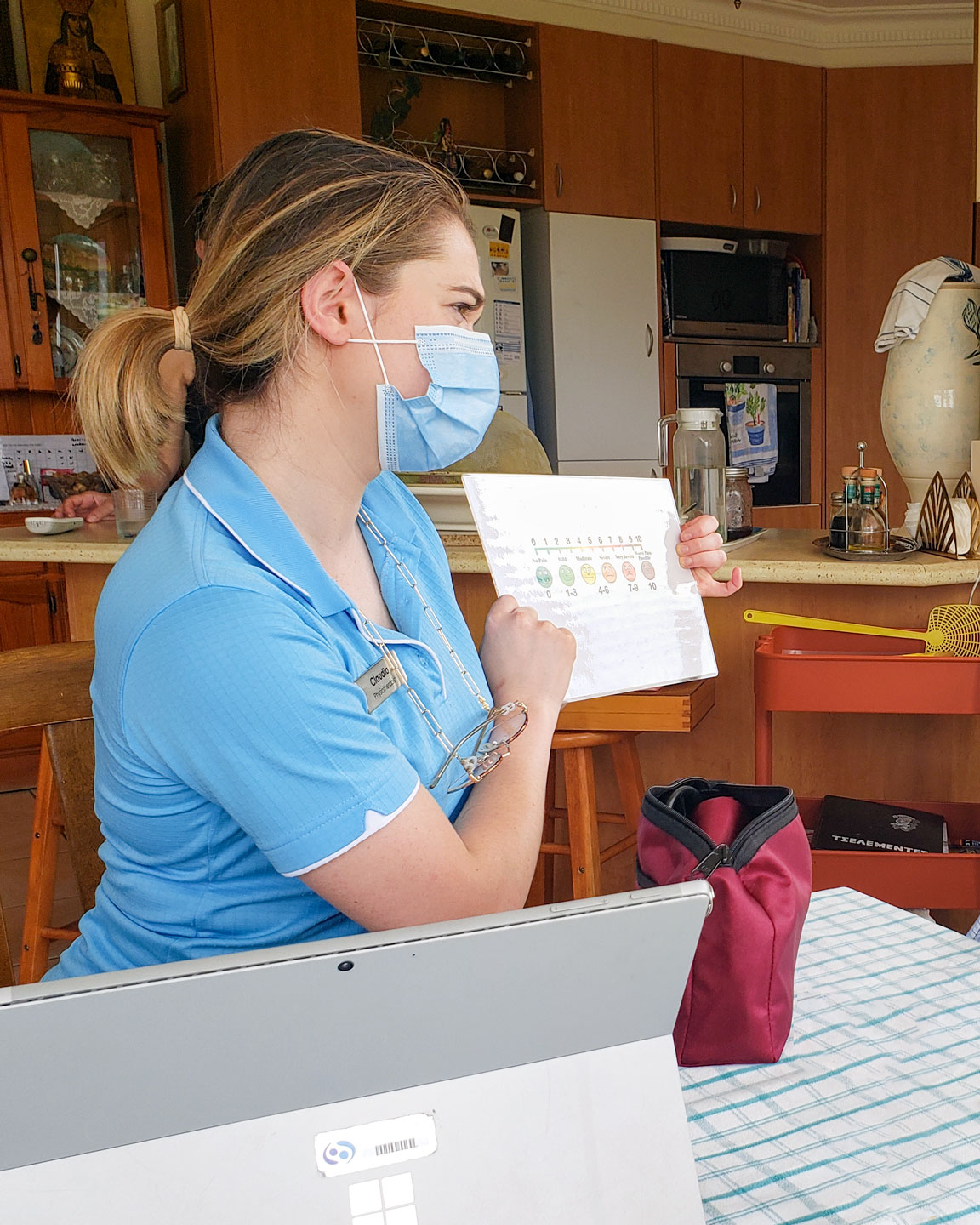
Helping with Frailty in the Community
Sometimes when somebody refers to someone from frailty, the person has not been objectively assessed.
Skilled observers can assess a person’s level of frailty quite accurately by looking at them and watching their movements. Frailty is typically a measure of someone’s resilience, strength, and total health condition. Often somebody who is frail has poor mobility, reduced strength, and low and decreasing body weight.
Frailty can also be accurately measured with tools such as:
- cardiovascular health study (fried’s frailty phenotype approach)
- rockwood mitnitski frailty index
- clinical frailty scale
- reported edmonton frail scale
The great thing about frailty is that it is manageable and, in some cases, reversible with appropriate care. Multi-disciplinary approaches are typically required to treat frailty.
Commonly, several healthcare professionals will work together to support a patient in managing or reversing their signs and symptoms. This most often includes a Physiotherapist focused on strength and conditioning and a Dietitian to support the increased nutritional demands of both frailty and physical activity from a prescribed physical therapy program.

Read a Home Visit Physiotherapy Success Story
In one example, Community Therapy was proud to support an older adult who was living in a residential aged care facility after enduring a stroke.
We provided private Physiotherapy to assist with rehabilitation in the facility, which resulted in the client being discharged and returning home to living with his wife.
In the home, there were several stairs to negotiate at the front door. With continued Physiotherapy to address his strength and mobility, he was soon able to walk up and down these stairs and move in and out of the house with relative ease. That was a great story of being able to take someone who was possibly going to be living in an aged care facility for the rest of his life and transition him into his own home with proper rehabilitative care.
Often one of the most meaningful goals for somebody receiving home visit Physiotherapy is to be able to continue living safely at home. For many clients, their home is a special and meaningful place. Assuring our clients are in a condition that allows them to remain at home is an important goal we strive to achieve.

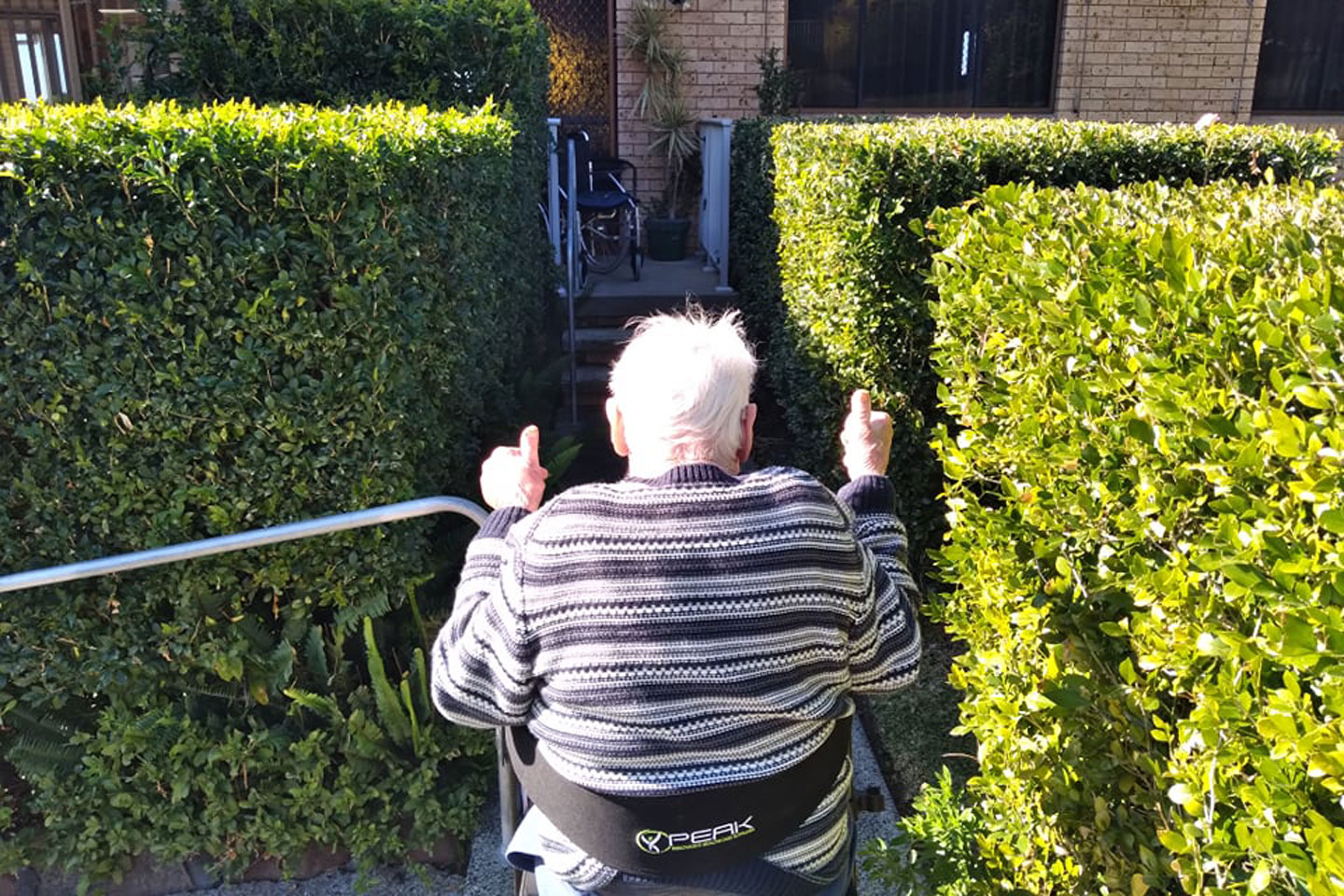
Why work with Community Therapy?
We look forward to your referral, please note that:
- We have a skilled and experienced team of allied health Physiotherapists.
- We are mobile and come to the home
- We have served the Hunter, Central Coast, and Port Stephens communities since 2016.
- We are locally owned and operated
To get started with Community Therapy, please use our contact or referrals pages!
